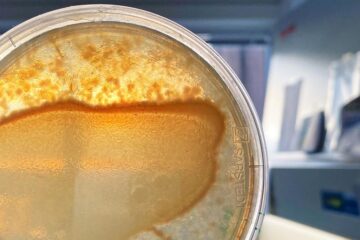International award goes to the European Academy Bolzano

The South Tyrolean Sparkasse foundation nominated the Institute of Alpine Environment for the 2010 international prize of the Gulbenkina foundation, owing to its dedicated commitment over the last 15 years in alpine environment research. The name of the winner has just been announced: this year's prestigious prize goes to South Tyrol.
On Tuesday, 20th July 2010 the Eurac Institute for Alpine Environment and the Association of American Environmental Journalists will officially receive the prize ex aequo in Lisbon.
The prize, which will be shared between the two first places, is worth 100.000 Euro.
Every year the prize is awarded to those institutes with outstanding contributions to the understanding and safeguarding of those values important for human life. Previous winners are, for instance, the UNHCR (the United Nations Refugee Agency) and the renowned Institute for Marine Research of the University of the Philippines.
This year, the international year of biodiversity, the prize was to be awarded to an Insitute which could contribute significantly to biological diversity and environmental protection.
The Gulbenkain Foundation is a foundation with its main headquarters in Lisbon and is a patron of art, science, education and teaching. Its founder was the business man and art collector Calouste Sarkis Gulbenkian, a famous pioneer in oil research who died in 1955.
The jury of 5, among whom Robert Lord May, Professor at London's Imperial College and Jaqueline McGlade,head of the European Environment agencies, chose the Eurac Institute as the winner on the recommendation of the South Tyrolean Sparkasse Foundation for its significant contribution to research in the alpine environment area.
The President of the foundation Gerhard Brandstätter and EURAC President Werner Stuflesser have both expressed their satisfaction with the award. Brandstätter considers it a confirmation for the Foundation that development funds have been put to proper use over the years. Stuflesser sees it as a recognition of the international significance of the scientific work at EURAC. The head of the EURAC Institute for Alpine Environment Ulrike Tappeiner will receive the pirze on the 20th July 2010 in Portugal.
Since its creation, the EURAC Institute for Alpine Environment has been dedicated to interdisciplinarity and internationalism in their research. The young, committed research team and Tappeiner carry out research on how global change functions in relation to the ecological balance in mountainous terrain and and have developed measurement systems and concepts for the continuous development of mountainous regions. The Institute, together with the University of Innsbruck, has published an alpine atlas in 5 languages which, for the first time ever, will give an alpine overview of the social, economic and ecological situation of the entire mountain region. Furthermore, the Institute has developed a monitoring system for continuous evolution of South Tyrol. The sustainment values were calculated for all 116 municipialities in South Tyrol and since 2000, brought up- to- date on a yearly basis. These values have already been successfully introduced in Agenda 21 procedures in some municipialities in SouthTyrol.
Media Contact
Weitere Informationen:
http://www.eurac.eduAlle Nachrichten aus der Kategorie: Förderungen Preise
Neueste Beiträge

Das Mikrobiom verändert sich dynamisch und begünstigt wichtige Funktionen für den Wirt
Ein interdisziplinäres Forschungsteam des Kieler SFB 1182 untersucht am Beispiel von Fadenwürmern, welche Prozesse die Zusammensetzung des Mikrobioms in Wirtslebewesen steuern. Alle vielzelligen Lebewesen – von den einfachsten tierischen und…

Wasser im Boden – genaue Daten für Landwirtschaft und Klimaforschung
Die PTB präsentiert auf der Woche der Umwelt, wie sich die Bodenfeuchte mithilfe von Neutronenstrahlung messen lässt. Die Bodenfeuchte hat nicht nur Auswirkungen auf die Landwirtschaft, sondern ist als Teil…

Bioreaktor- und Kryotechnologien für bessere Wirkstofftests mit humanen Zellkulturen
Medizinische Wirkstoffforschung… Viele Neuentwicklungen von medizinischen Wirkstoffen scheitern, weil trotz erfolgreicher Labortests mit Zellkulturen starke Nebenwirkungen bei Probanden auftreten. Dies kann passieren, wenn zum Beispiel die verwendeten Zellen aus tierischem…





















